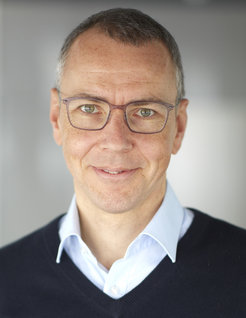Immanuel Bloch named Clarivate Citation Laureate
The prize is awarded annually by the analytics company Clarivate to outstanding scientists.
Immanuel Bloch, Director at the Max Planck Institute of Quantum Optics, is one of 20 scientists to be named this year's Clarivate Citation Laureate. The award honours researchers whose work has been cited an exceedingly large number of times and is considered pioneering for a new area of research.

Immanuel Bloch is one of four recipients in the physics category to receive the award for his "ground-breaking research on quantum many-body systems using ultracold atomic and molecular gases, opening the way to quantum simulations of 'artificial solids'" - as reads Clarivate's public press release on 21 September 2022.
The basis for being named a Citation Laureate is not one's research achievements per se, but rather the citation rate in high-ranking journals. To identify suitable Citation Laureates, the Institute for Scientific Information (ISI), which is part of the Clarivate group, conducts a comprehensive analysis of publication and citation data every year.
Only authors of scientific papers that have been cited 2,000 times or more (which is only the case for 0.1 per cent of publications) are eligible for the prize. The award winners are also considered possible candidates for the Nobel Prize: since the establishment of the award in 2002, a total of 64 Citation Laureates have gone on to win the Nobel Prize in their subsequent scientific careers.
Immanuel Bloch is very pleased about the award, but at the same time admits that prizes were never the driving force behind his research: "We’ve clearly created something of lasting value, and that’s gratifying. That being said, prizes were never the motivating force for my research. I always wanted to do what interested me and to discover new things in physics", explains Immanuel Bloch in an interview (published on lmu.de) that occurred on the occasion of his appointment as Clarivate Citation Scholar.
Professor Immanuel Bloch is Director and Head of the Quantum Many-Body Systems Division at the Max Planck Institute of Quantum Optics and Professor of Experimental Physics at the Ludwig Maximilian University in Munich. He has already won several awards for his pioneering work in quantum optics. Most recently, he received the Bavarian Maximilian Order, the highest award of the Free State of Bavaria for outstanding achievements in science or art.












